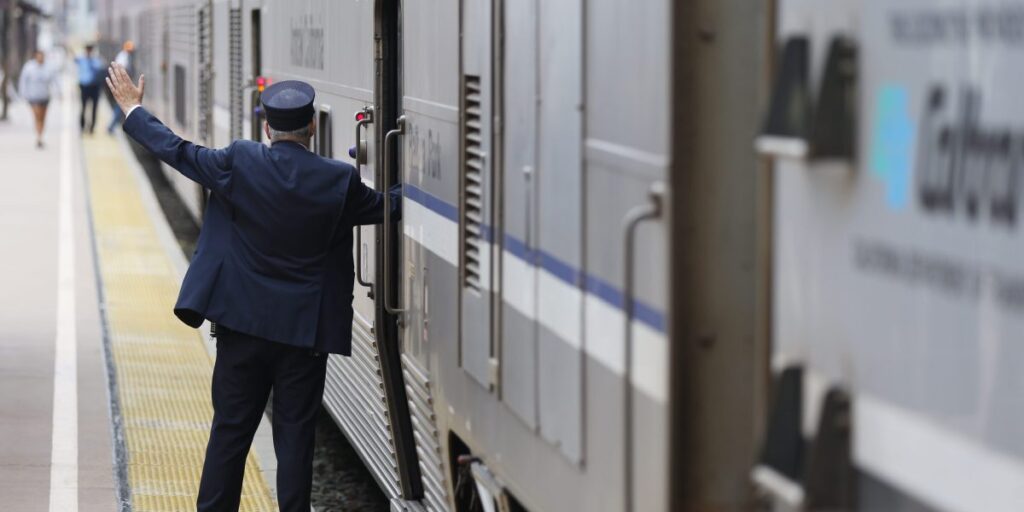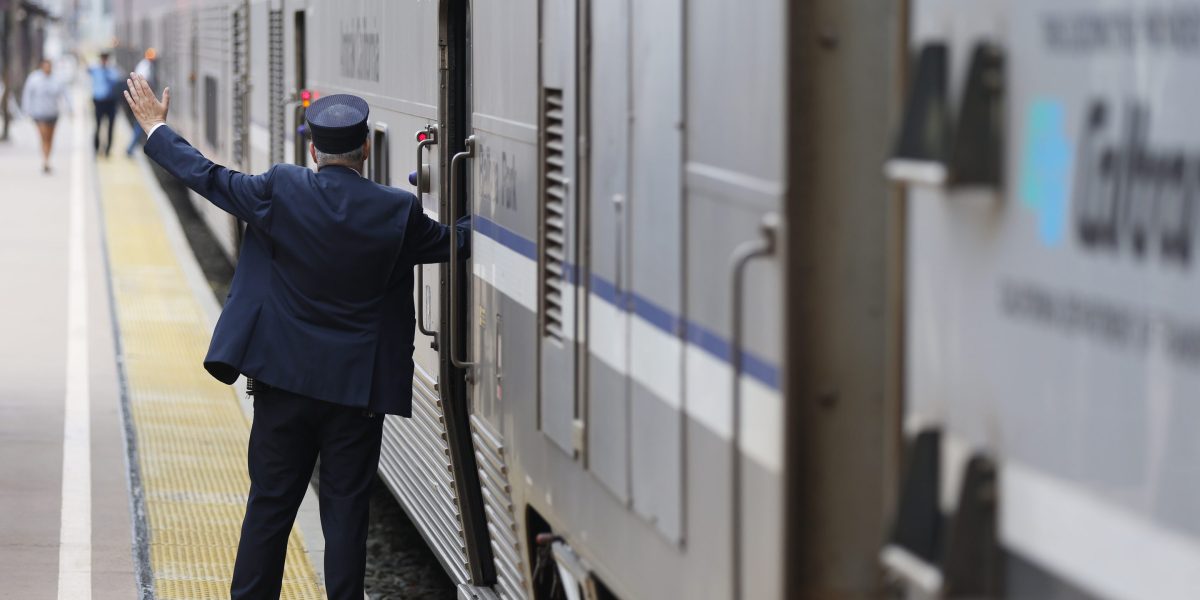Government says three-quarters of Amtrak trains are late because of one rail company’s repeated lawbreaking
“Americans should not experience travel delays because rail carriers break the law,” Attorney General Merrick B. Garland said.


Norfolk Southern railroad has been causing chronic delays for Amtrak between New York and New Orleans by forcing the passenger trains to wait while its massive freight trains pass, the federal government said in a lawsuit filed Tuesday.
The Justice Department took the unusual step of filing a lawsuit because it says Norfolk Southern is consistently violating the federal law that requires Amtrak’s trains to get priority when they cross a freight railroad’s tracks. Amtrak relies on tracks owned by one of the six major freight railroads across most of the country.
“Americans should not experience travel delays because rail carriers break the law,” Attorney General Merrick B. Garland said.
Amtrak has long contended that the private freight companies on which some of its trains run, do not obey the laws that give its trains precedence. Meanwhile, the freight companies often contend that as long as trains run on time—or close enough to it—they are honoring the rules. In recent years, since the passing of the Bipartisan Infrastructure Bill, which allocated $66 billion in funding for rail projects, Amtrak has taken a hard line against freight companies it says are breaking the rules. Amtrak has pushed for investigations into freight rail carriers and lobbied for the right to sue them in federal court. The tensions even spilled over into a social media argument between Amtrak and Norfolk Southern Railway and fellow freight carrier CSX Transportation.
In an interview with Fortune in April Amtrak CEO Stephen Gardner lamented the lack of recourse. “There has been decades of no enforcement,” Gardner said.
With Tuesday’s DOJ complaint, it appears Amtrak got its wish.
The government alleges the Norfolk-caused delays “erode passenger trust in Amtrak and the frequency with which consumers choose rail travel over an alternative means of transportation,” according to the complaint.
Norfolk Southern spokesman Tom Crosson said the railroad is committed to complying with the law requiring passenger trains to get priority and helping expand passenger rail.
“Over the past several months with Amtrak, we have focused on the on-time performance of the Crescent passenger train,” Crosson said. “We hope to resolve these concerns and continue to make progress together.”
Only 24% of Amtrak’s southbound trains running on Norfolk Southern’s network reached their destinations on time last year, forcing most of the 266,000 passengers traveling the Crescent Route between New York and New Orleans to deal with delays, according to the lawsuit.
In one instance, an Amtrak train just 10 miles outside New Orleans was delayed for nearly an hour because Norfolk Southern forced it to travel behind a slow-moving freight train. In another, the railroad’s dispatchers made an Amtrak train wait for three freight trains to pass.
Often, there is no way for an Amtrak train to pass one of Norfolk Southern’s trains because the railroad is running longer and longer freight trains that won’t fit on one of its sidings along the main line. All the major freight railroads now regularly run trains that stretch more than 2 miles long.
Gardner, in a statement Tuesday, said this lawsuit will help ensure that passengers arrive at their destinations on time.
“We appreciate that the U.S. Department of Justice is taking steps to enforce in federal court the long-standing federal law requiring that intercity passenger trains receive preference over freight traffic when we operate over shared rail lines,” Gardner said in a statement.
“For half a century, federal law has required freight rail companies to give Amtrak passenger rail service preference on their tracks — yet compliance with this important law has been uneven at best,” Transportation Secretary Pete Buttigieg said.
Norfolk Southern is one of the nation’s biggest freight railroads based in Atlanta that operates trains all across the eastern United States.






